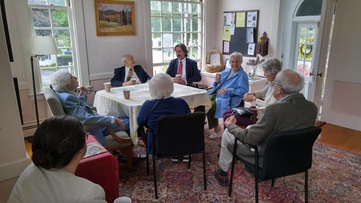 There is an article floating around my Facebook page that suggests the near death of spirituality in the protestant churches of the United States. In one way it is just another clergy clickbait article. It has one of those titles, after all; "5 Reasons Spirituality is No Longer Important to the American Church!" Also, it comes from a long line of "this is why we are shrinking" complaints and it--although the author points out that we haven't ever really be that good at spirituality in the first place--at least implies a fix . In these ways it fits just the sort of church-story I warn people about. However, it does underline a problem and it is a serious one. Here is an example; my dad, who isn't a church person at all, told me the other day that he had noticed that a certain type of institution was "picking up the slack" from declining churches. Guess what they were. Were they new age bookstores? Retreat centers? Martial Arts and yoga? Nope. He said they were libraries. Libraries!? What could he mean by that? The problem is we know exactly what he means. Libraries are another place--just like churches--that provide non-religious and non-spiritual services. They are a good gathering spot to talk about issues and to get to know people. I have a great one a block from my house. I love it. Dad's implication, of course, was that what libraries do is also what churches do. That is, not spiritual services, but community services. It is hard to view something as a spiritual place or a house of worship if you aren't interested in what those terms might imply. Secular society frequently sees a community center where some of the people engage in magical thinking. To a large extent, this is exactly how we sell ourselves to the world. That is the problem. Folks inside and outside the church see the congregation in pragmatic terms. It does what libraries do. Or what the salad bar did for single people in the '90's. Where can I meet people? What is the best way for me to impact and improve my community? Where can the kids get that little bit of enrichment--often with very little home reinforcement--that comes from Sunday school? I could go on. We see church as an avenue for good works. What we frequently miss is the spiritual grounding that is supposed to go into those works. Isn't spirituality supposed to be what the church does best? In my previous post we learned that for Frederick Henry Hedge the "north pole" of the church represents mystical connection to the Divine. The south is for rituals to help us get there. The west draws us to adventure and exploration of ourselves and of the great and wondrous world. The east grounds us in our core beliefs. Many people work hard to situate themselves and their communities on this compass but we are so distracted by the practical bits--rental agreements, the big fundraiser, the fall fair or the new initiative--that we can lose track of why we are doing these things. Church isn't just a place to be busy or to be in some sense a good citizen. We do these things through a congregation because we are spiritual beings trying to live lives that are in some sense religious. Sometimes I wonder if all our activity actually is part of the problem. Most of the ministers I know work hard to develop their own spiritual paths. Some of them are involved in rituals and pilgrimages. Others are more likely to study or discuss. Virtually all of them try to pray and meditate. They offer these options at their church from time to time. They try to provide explicitly spiritual opportunities for children and adults. Rarely do these programs become popular. There is a small core in each congregation who has the interest and can make the time. There are others who would like to participate as well. Yet we instinctively know what will bring the most people out and the emphasis goes there. When we do this we risk becoming a library without books. Which is to say a library you might visit but are unlikely to join. I do wonder what the new church will do to lift up this central element of church life. The challenges are many. People cannot (or will not) make it to worship on Sunday morning in the numbers they used to. Other times all seem problematic. Clergy are expected to be a resource on these topics (and are) but few people ever ask them a question. Some people feel that there is so much "important" stuff to think about (like the acquisition and maintenance of money and stuff) which leaves little time to consider the reason we exist, and what makes a just and holy life. The new church will need to find a way to reach out to those folks. Also, the church needs to figure out a way to cast a line to those people who try to be part of the spiritual life and cannot do it on their own. These are the people who grace our pews when they can. They may think they are there for the coffee and the committee meeting but they aren't. They chose the church (or synagogue or mosque) over the library (or rotary or diner). There is a hunger that may not be fully understood and articulated in each of them. How does the new church find that hunger? And how do we feed it? Here are some links... First, to the article I mentioned: 5 Reasons... Next, here is a link to my local library. Frankly public libraries are struggling, too. In fact, most places where people gather together for free are having a hard time. Patronize them, and drop some money in the plate. They do good work. Here are links for other articles in this series The first one is a "Prequel" Here is Chapter 1 Here is Chapter 2 Here is Chapter 3
0 Comments
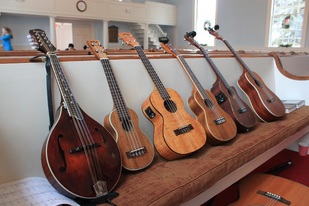 By Chapter 3 we should have a good idea what the problems are. The established church and all its institutions are in crisis. The ship is sinking. The strange part is that what we mostly do is run around trying to save it! Getting lighter or leaner doesn't help on its own. Pumping the bilges doesn't really keep the flood at bay. I hate to say it folks, but it is time to test the water. We need to make plans before the clock runs out.. We are not alone, of course, all kinds of non-profits and service organizations are sinking too. We also have a cloud of congregations. We all must think creatively. Maybe we need to make a different boat out of the old one. So...what will help us do this? At this point it might make sense to survey the ship. What is its fundamental function? What are its fundamental parts? I am concerned primarily with the liberal church but this applies to others as well. In order to get our bearings it makes sense to look to models that have been used in the past. Naturally (at least if you know me and my own tendencies), this made me think of that great transcendentalist theologian of the church, Frederick Henry Hedge. You see, many years ago (in the late 19th Century) Hedge preached a sermon called "The Broad Church". In it he discussed the sources and forces that could make his inclusive tradition even more so, while also keeping it grounded enough to be something other than a discussion society or social clique. Like others before him, he organized his thoughts around the image of a compass. The goal at this point isn't for us all to find the same point on this compass. Instead it is to find our own place between the points. As you read the descriptions you will see that your congregation may travel farther "north" than some. Others may have found a strong place in the "east." This is a good thing. To Hedge the goal was to get situated, be ready to travel, and to be open to seeing and experiencing the perspective of others in their own places. This he called the "Broad" or (small-"c") "catholic" church. A church that knows what it is but is also adaptable and welcoming. Now, he chose his points based on his own New England biases. That is to say, he labeled things "North," South," "East," and "West" pretty much based on the worldview and understanding of his culture and his friends. Don't get bogged down in that. What is important is that he is trying to situate each broad (wide, open, non-creedal) church somewhere between these four elements, each balancing out (and in conversation with) the others. Hedge began with the east. For him this pole stood for the unchanging and eternal parts of the community. This is the pole of core belief. It is the story by which we tell our own stories. "The east is the region of steadfastness, of perpetuity...Every church must have its conservative side, its point of resistance, its fixed fact." Even churches like our own need something like this to hold it together. Without the eastern pole, we are adrift. There are churches (liberal and conservative) who try to hide it and who (at least among the liberals) even deny it. Yet the east is there for us all. What it is varies of course. In the case of my own congregation we take the teachings of the heroes and stories of the Bible very seriously, even if we do not always agree in interpretation. There is our covenant as well "In the Love of truth and the Spirit of Jesus, we unite for the Worship of God and Service to All." Also, though it may seem strange to some, the idea of a non-creedal tradition is itself a central belief.. We explore our faith together, with the understanding that we will disagree. For another congregation the eastern pole may be different. It may provide a greater or lesser pull. However, it is there and gives us a foundation on which to build. It also gives us something to struggle with and against.. "Christianity," Hedge writes "though bound to a given idea and to certain immutable truths is not, for the rest, a fixture, but a movement and a growth." What keeps our faith vibrant and growing (here we are talking about spiritual growth, not numerical growth) is that opposite pole. The west calls to us as well. Back in Hedge's time the image was an obvious one. There the "wilderness" started right outside Boston's western suburbs and stretched all the way to California. For the people of the area and era, it stood for almost unlimited potential.
That said, it is hard to get up for the western hike sometimes. When we think of this pole there is both excitement and fear. It calls us to creativity in both our personal and corporate lives. The west is uncomfortable. Still, we need to do go there, don't we? Henry David Thoreau wrote (in "Walking") "Eastward I go only by force; but westward I go free." Hedge asks us to consider what we are holding on to that we don't need to take with us in our new explorations. In church language, how many times have we used the phrase "we have always done it this way" as our sole excuse for not changing? What holds us back more than anything else is that fear of failure. A journey into the wilderness inevitably leads to numerous misadventures. When we are finally safe and sound we love to look back at them, impressed by our own perseverance. However, at the time they are just painful. They challenge our sense of self. We are embarrassed. This is one of those places where an attitude adjustment is in order. We need to get over ourselves. We have to explore and experiment. We must prepare ourselves for mistakes and wrong turns confident that our final location will make it worthwhile, even if we don't ultimately know where that is. Thoreau reminds us that "We go eastward to realize history and study the words of art and literature, retracing the steps of the race, we go westward as into the future, with a spirit of enterprise and adventure." OK... So what does that leave us? The north is the next on our list and for Hedge represents ideals and mystical connection. Quite simply, for most folks (my hero Larry Wilmore being a notable exception) the northern arrow points "up". This is the direction we think of when we think of the transcendent, the Divine, God, or the Great Whatever. This is what makes congregations unique. We are into the big question and the big connection. An internal urge--small or large--toward exploring this dimension of our lives is what drew us to find a church. We know we won't ever have all the answers. Yet we travel north in fits and starts. Our communities of faith are frequently the gates and doors that we take to go that way. Frequently it is where we find the best companions and the clearest road. Hedge reminds us that "mysticism is a very important element in religion--a feeling after God... It is that by which religion lays hold of the invisible and enters into fuller, that is, more conscious and intimate, communion with the spiritual and heavenly world." Finally, there is the south. Here is the home of ritual. Hedge says, "A church requires a ritual, requires symbols and sacraments,--something outward as the exponent and medium of ecclesiastical life." North and south work together to help us connect to each other and the Divine. In a church like mine, it may at first seem like we don't have many symbols and sacraments. However, it just means that what rituals we do have grow in importance. Our worship services--while comparatively simple--are filled with elements we expect to sustain us. The cross behind the pulpit reminds us that not everything is about us. Sermons, hymns, special music, contributions for our kids and monthly communion help us, through steady and meaningful repetition, to look north to God. Do you see what these points have in common? They are all religious. They are all spiritual. They aren't about programs, budgets, or membership initiatives. They are about the deep and the eternal. They are about the thing that no other organization does as well as houses of worship. If we are to build the new church out of the old, it makes sense to start by situating ourselves in the seas of spirituality. What better thing to use than a compass, helping us to narrow our thoughts down to the basics? Other institutions and projects may grow out of our foundational work. They certainly should! Still, we need to remember that they are secondary. Buildings are nice to have, Sunday school is, too. It is great to have money and staff. It is lovely to bring them all together on Christmas Eve and Easter Sunday. Yet without these four points what we do is nothing but a show; a chance for warm and transitory feels. So, where is your ship? How do you situate yourself? How do you situate you community? Where you land will say a lot about the direction to take. Then we can ask ourselves if we need to move or--just as likely, possibly even more--we can ask what new church we need to build in the same spot. We should also remember that finding the location of others will help us form coalitions, squadrons and fleets to do the work of church together. As denominations break down and seminaries alter their course, each church has to find its way, but we do not go alone. Hedge concludes his sermon by saying "Let each church labor in its place and kind to develop and assert this catholicity, and the boundary lines which divide the sects shall be washed clean out in the gracious life that shall flood them all, and fuse them all into one prevailing kingdom of God, whose unshut gates shall exclude none that desire to enter, and where east and west and north and south shall meet in peace and join in praise." That is in for Chapter 3! If you made it to the end, I congratulate you. As you know this is part of a series. I am not sure what comes next. If you have any thoughts or stories to share about the new church being built at your spot of spiritual life, please share! Here is Chapter 1 Here is Chapter 2 Here is Chapter 4 All Hedge Quotes are from his sermon, "the Broad Church". 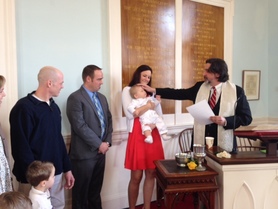 We are back! Last time I talked a bit about my "listening tour". Thanks to my flexible sabbatical schedule I am able to visit my friends and colleagues and hear a bit about how their church lives are going. The upshot is that people are frustrated. Just as we see in pretty much every other area of life, the way people are doing religion is changing and old, steady, tried-and-true institutions are having a hard time adapting. My colleagues and I are on the front lines of this shift. Trained in the "old ways," part of our job is to meet those old (and still important) expectations while looking ahead to what comes next. In this second installment of the "New Church" Series we will examine another couple of areas where people are finally noticing the massive shifts in our church life. Last time we talked about denominations. This time let's discuss clergy. I will include a link to Chapter 1 on the bottom of this page. Clergy Must Learn Different Things and Learn Them Differently When I went to seminary I received the usual education. There were excellent theology classes. In fact any academic discipline was well-provided for in quality staff and literature. I use what I learned from them pretty much every day. This is a good thing because there were a lot of those sorts of courses. I spent a great deal of time learning about the Bible, the history of the church, religion and science, religion and philosophy. Then there were practical courses that were frequently also taught by academics who--while they had more experience than me--didn't necessarily have a whole lot of actual experience in what they were teaching. To counter this, at other times they would bring in people who had some experience (not as much as one would hope) but who frequently couldn't teach! They were on campus for other reasons and were dragooned or seduced into classroom time. Many of us left seminary with a deep well of spiritual and religious knowledge that has served us well. That said, if it wasn't for my excellent internship under the guidance of Reverend John Corrado and the Grosse Pointe Unitarian Church I am not sure I would have survived my first settlement. The fact is, some of what I learned in school about the practice of ministry was simply wrong. Maybe it would have worked in a vacuum. However, the void doesn't have protestant congregations. It has been a while since seminary for me. My experience since tells me that things are changing for the better. When I enrolled in my Doctor of Ministry program I was delighted with the results. It was practice-based. It adapted to our ongoing ministries. The adjunct practitioners were top-notch. Best of all, these big-name homiletics professors knew their strengths and weaknesses. What a blessing it was when I asked a question in class one day and my teacher (a publisher of many books) responded with "I don't preach nearly as much as you do. I bet you can answer better than I can." Thank you. I am pleased with the direction that seminaries are going. I also know that more change is on the way. Of the four seminaries I know best one is dead, two are in the process of completely transforming themselves and one still looks the same but I know it is constantly adapting. In two years none of these four will be on the campuses where I studied. There will be more losses and transformations to come. I am actually pleased that they have risen to the challenge. Clergy need to learn new and different things. We need to be flexible enough to let that happen when (as we have noted) we don't really know where God is taking us. Churches Need to Ask Themselves if They Need Clergy Yeah, I said it. The fact is, as we develop new models for congregations (or whatever we choose to call them) some of these models will not need a religious professional. At least they won't need one all the time. They may need a consultant or a theology teacher every once in a while if they are a small yet high-commitment church. Maybe they need a circuit rider to come preach every once in a while. It is possible that many of these new religious communities won't be meeting for one big worship every week. When you add this to the changing view of clergy and of "leadership" in general, even congregations with a full time pastor or two may want to think creatively about how they want to use that person's time. The decision can go either way. The trick is to be creative. As I was leaving my first settlement I remember telling the congregation that what they really needed was an administrator more than a minister. They were already pretty good at doing a lot of the pastoring themselves but could use some coordination. In my current settlement everyone is so busy they need a minister. It is a small and dedicated membership afflicted by all the busyness that comes with suburban life. We have talked about it and it is hard to imagine a healthy congregation in this context where the clergy staff isn't heavily invested in whatever the "new thing" may be. Incidentally, we are also a teaching church if there are any seminarians out their interested in experimenting... So, practically speaking, what does this mean? It means some creative thinking for everyone, but particularly for lay leadership. Obvious changes like bi-vocational ministry (ministers having another non-minister job), part-time pastoring, "yoked" congregations, and licensed or lay ministers are the sorts of things that religious professionals are familiar with. Right now my friends and I are having a semi-humorous Facebook conversation about who would do better in the food service industry when we need to scale our ministries down! In short, we are ready for change...but maybe not all of us for professional kitchens. The problem (and to be clear, it is nobody's fault) is that we are stuck in a cultural vacuum. The perception of the church and clergy in the current culture is based on an "ideal"--and primarily fictional--image from two or three church-phases ago. To most people a protestant church pastor is married but very old and almost certainly male. He has to be, because in our heads his wife is still running the Sunday School...for free. This hasn't been the situation for a long time. It probably never was the situation. However, while most congregants as individuals would acknowledge that fact in a heartbeat, the system still acts like this is the way things are. We all (clergy and lay) play into it. We see our divergence from this model in terms of compromise and failure. How do we change this to terms of opportunity? A different sort of pastor may be just the thing for many congregations. A leader who is also a teacher, a lawyer, a musician, an artist, a warehouse worker or barista would naturally open up different sorts of ministry. It would also give the congregation a flexibility it wouldn't otherwise have. That new leader of the "new church" would have experiences to draw on that other clergy would not. It would be an exciting, unique and different opportunity. We face an entrenched image if "respectability" and "success." We need to break out of the trap and go on the road willing to be more like the prophets of the past. Only then can we open ourselves and our community to the variety of opportunities that abound for the spiritual life. That is all for now. In many ways this area is the place we have seen the most change. That shouldn't be surprising. If the clergy are doing their job--and rest assured the vast majority of us are working very very hard--we should be out ahead. Another big challenge might be in how we learn from the transformation (and yes, death) of our schools. What can we take with us to the people we serve? Anyway, food for thought. Thus ends Chapter #2 Here is the link to Chapter #1 TO BE CONTINUED  Back when I was in seminary, there was a retreat center that ran advertisements in church trade magazines. The ad featured a large picture of a youngish hipster male blissfully and intently staring at a handful of moss. I will say that again. He was staring at a handful of moss. It appeared that he had previously been smelling it and was now in the process of of making it his pet. I always thought this picture was a little odd. I get the idea of course. I know (and teach) my Emerson and Thoreau. "Come to our retreat center and stare at moss" isn't really that bad a sales pitch in the world of spiritual and religious development. It indicates an extended period of free time with nothing to bother you. You have the freedom to stare at moss! What a blessing that is. That image has been flashing through my mind lately when people ask how my "vacation" is going. They mean my sabbatical, of course, but since they probably aren't reading my blog their image of me is closer to that of our moss-meditating friend than it is to reality. At the very least I must be sitting by the lake, right? Nope. I have projects and ideas, many of which I have already mentioned. However I am finding that there is a certain flexibility in my time that has allowed me to engage in an unofficial listening tour of church leaders who also happen to be my friends. I have to tell you. What they report is both exciting and sobering. Things are hard in the traditional church. People are stressed out. Attendance is down. enrollment is down. Pledges are just holding their own in most places and dipping in others. Our old, romantic-yet-tired buildings keep sucking away more and more of the money. Our pastors feel the pinch of limited resources and guilt for not being able to "turn it around" and send the church back to the dreamy heights of the 1950's and 60's. They experience this while knowing in their hearts that in most cases they really really can't. That train has left the station. A new era has begun. Still, in the midst of all the crazy and the chaos, people are finding new ways to do church. They are seeing clearly enough to begin to build the tools and techniques that will help the next generations grow their own communities of faith. They do this even as they live in and love the old way. In an earlier post I wrote about how the new church is coming but that I didn't know if I had any suggestions. I still may not, but I do have a better idea of what people see as the next thing. By "people" I mean ministers, mostly, and some dedicated lay leaders. Which is to say, the folks who think about this pretty much all the time. I am beginning a series today about what I am learning. First we will look at some changes that people are talking about. Perhaps there might even be some suggestions by way of example, but I can't promise anything.... Here is #1 Denominations are becoming both less important and more important. This really shouldn't be a shock to anyone, right? We all know about those people who do not claim any particular religion (we like to call them "nones" apparently). Well, guess what? Most lay people who attend church probably don't claim a specific denomination. Instead of saying "I am a--" [UU, Baptist, or...whatever] they say "I attend--" [First Parish or Johnson Street Baptist or...whatever]. Their identity is with a specific group of people with whom they have formed relationships, not with an office in a city somewhere, a set of historic institutional predecessors, or even a poetically-named initiative. The specific differences between the United Church of Christ, Unitarian Universalist Association, American Baptist Convention, and Disciples of Christ, for example are very important to the people whose job it is to serve member congregations. To the person who shows up on Sunday or volunteers in a congregation's ministry it is a lot less important. There are plenty of agnostics in conservative churches. There are plenty of evangelicals in liberal ones. I have met a lot of them. Mostly they are happy where they are and have solid reasons for attending a congregation that does not reflect their theology. To put it simply, they love the people they go to church with. That said, all you denominational types don't need to panic right away. There is something very important that you need to do. Congregations still need services. Folks may no longer want denominational leadership (denomination x tells me to do y so I will) but they do want quality materials for RE. They like to have their professional staff licensed in some way. They need people with big picture knowledge to facilitate their own congregational discernment. Churches need to know that they are not alone even if our connections work differently than they did before. Denominations cannot point the way to the future because they don't know what it will be either. They are doing their best to do so but there have been so many changes. Just like churches, themselves, they are trying to survive, to hold on to what they have been for the last century or so. Also just like the churches the option to turn back or stay the same is a mirage. We are all becoming transdenominational. We are finding out together what that means. Clearly there is a place for institutions that work with (not over) congregations. I know many denomination leaders who are doing just this kind of work. It is happening but it is slow and sometimes obscured by other things. For those of us who serve churches in the Congregationalist tradition we have a model hidden among the various programs, initiatives and positions that have built up over the years. Providing basic services was what denominations (or associations) were originally all about! In the Congregationalist way every congregation is its own denomination. An individual is only ever a member of that local church community. Good news! We are headed back to our roots. The challenge is to point ourselves in the right direction. OK this is already long so I am ending Chapter #1 Here is a link to Chapter #2 ...TO BE CONTINUED... I want to be clear. I chose a life in the church. When I was about 17, I became one of those kids that hangs around the margins of friendly youth groups. I would show up for pizza and movies. Sometimes, I might even go to worship. At that time my parents were not church people. They liked to sleep in and have brunch on Sundays. I went on my own.
There were many reasons for my decision. I was interested in issues of life and death that didn't seem to be addressed in other places. I was also a very political kid. In fact, I decide to become a minister at the 1988 Democratic Convention in Atlanta. I was a "page" for the Maine delegation (I wasn't old enough to vote ). However, I was also there as a volunteer for Jesse Jackson's presidential campaign. It was my time with that campaign ---staying up late with a combination of labor organizers and pastors ---that helped me find a different path from the political system I had become disillusioned with. That is when it finally occurred to me that I could find a way to combine my interest in spirituality with my interest in helping people. None of those folks I knew in Atlanta would remember me today but I am glad that I met them. The point is, I love the church. There have been times and contexts where I have found myself in a "poor fit". There are times when I have grown tired both as a layperson and as a pastor. This is natural. That said, I have made the church central to my existence. It is my job. The church houses, clothes, and feeds me...literally. When everyone else leaves, I am still there. It is also, in many respects, central to my social life. Outside of my family, the vast bulk of my friends are either clergy or clergy spouses. So it is no small thing to me when I see the changes happening in our congregations and institutions. You can count me in the front ranks of those who have a lot to lose. Like everyone, I see that most churches are shrinking. Some of them are closing. Supporting institutions like denominations/associations and seminaries are merging and sometimes vanishing as resources for survival become harder to find. Well-meaning church growth consultants will sell you recovery programs. The problem is that their success rate is hardly better than doing whatever you are doing now. Pub Theology isn't going to save us. Tweaking the liturgy isn't going to save us. Increasing or decreasing staffing isn't going to save us. Altering our programming isn't going to save us. At least not the "us" that we think of when we think of the traditional institutional church. Change is already here. It is inevitable that we greet this desperate situation with a certain amount of anxiety. This is simply because the change we see is also inevitable. There are too many forces at play to turn back the clock and expect that being the "best congregation or denomination ever" is going to bring people back in to worship every week. We are in the midst of watching something we love potentially die. It is as if we built sand castles on the beach expecting that the tide would never rise. Well now it has risen and it will continue to. Building a bigger moat will work about as well as it does on the beach. Our culture will not reverse itself. The institutions that we know and love will either fall into the sea or become something entirely different. We do no one any favors by pretending that this isn't happening. When we do, we all end up running around trying to fix it. Then, when we fail we label ourselves "failures". Perhaps we find others (denominational leaders, pastors, church moderators for example) to blame for a flood that has been centuries in the making. In any case, we mourn the loss and see it as final and tragic. None of this is a necessary response. What we should do is stop our whining and face the future with our heads high and our hearts open. That, of course, requires us to greet our situation using a different frame. Instead of anxiety, fear, and frustration as we watch the "old thing" fall away we need to turn to the "new thing" being born with a combination of hope, love, and excitement. It is exciting, you know. After centuries of doing roughly the same thing we have been chosen to reinvent how people do religion! Who wouldn't want to do that? I don't know about you but I believe in resurrection. I feel blessed to be able to witness at least the beginning of this one. The challenge ahead of us, frankly, is a big one. Those consultants I mentioned? They are doing their best but the fact is no one knows what is coming. They are showing us programs that worked somewhere else (we hope). They do not know our (or your) church. Each congregation and each religious organization has a part to play in this resurrection story. That part requires courage. There will be more failures in our future than victories. Yet, the victories will be greater than our failures. It means every leader of every committee in our committee-filled faith will have to expect that they will be sifting through the ruins of plans A, B, and C (at least) to find the small successes with which to build a new way of doing church. Every pastor will have to expect that the church they are building may be beyond their (our) skill set to lead. Denominations and Associations may have to face the fact that they are in the way rather than the way. Everything must be on the table. Why would we expect what comes next to be at all like what is here now? As you might have gathered, I am not planning to make any great system recommendations at this time (and possibly ever). Too much is in flux. What I would like to suggest, though, is that we practice changing our attitude. We need to be aware of our irrational concerns and to work to solve only the rational ones. We need to once again find joy in innovation. We need to cheer the heck up and open the windows. Throw things against the wall and see what sticks. Then clear out what falls and move on with more grist for the mill.. This is not a time for timidity. Church mice can hide and wring their hands. The rest of us cannot afford to. I chose a life in the church. I do not want the new church to be built by people with closed minds and hearts. I do not want to spend the rest of my life in an institution that is bitter, angry, and always looking back. I do not want to live in a church that is sincere but scared of the world around it. Can we prepare ourselves for the leap of faith? I hope so. I do not enjoy living in a world of infinite resignation. |
Adam Tierney-EliotThis is my old weblog of many years. I will probably post here from time to time is there is a subject that does not fit WWG. However WWG is the more active page at this point. Archives
April 2022
Categories
All
|
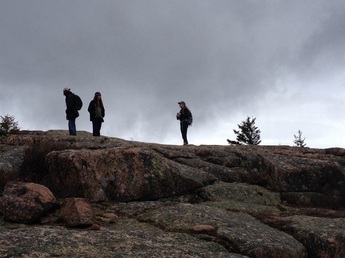
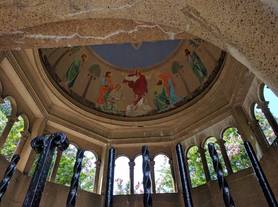
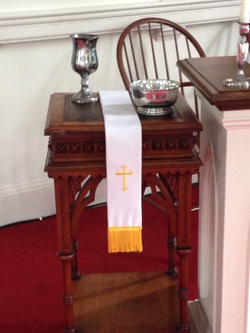
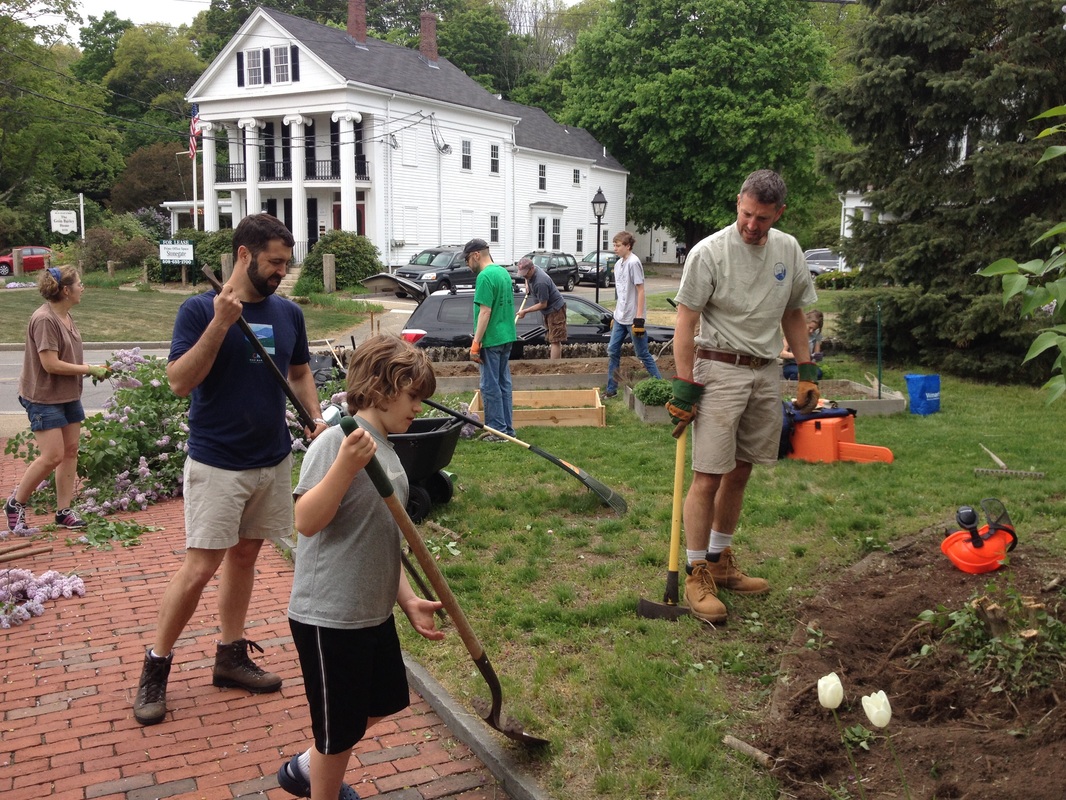
 RSS Feed
RSS Feed